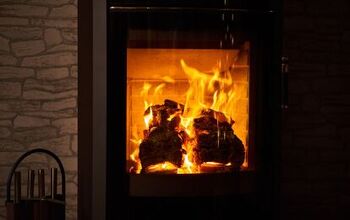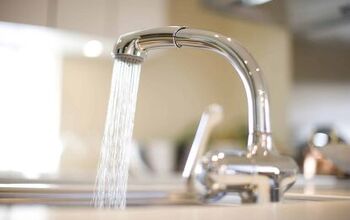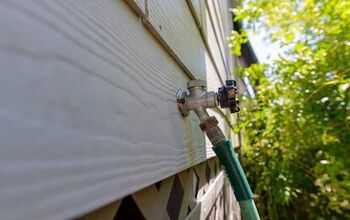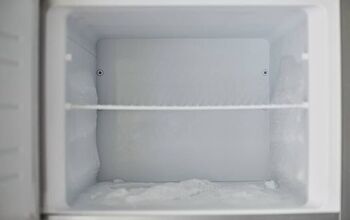7 Security Camera Cable Types

Homeowners and businesses utilize security cameras to boost safety and gain peace of mind. The world of security cameras, and security camera cables, can be confusing and hard to sift through. There are so many options of security cameras available, and that comes right down to the cables.
BNC, RCA, and DIN cables are among the most common security camera cables available right now. Ethernet and IP cameras are the best cables because of their consistently high audio and video quality. Otherwise, Siamese and copper coax cables are great for security cameras and provide a large range.
The two basic types of security camera cables are ethernet and analog, and that applies to cameras themselves. Analog cameras may seem outdated, but they are still used as widely as IP camera systems. Follow along as we take a deep dive into the world of security camera cable types.
Types of Security Camera Cables
1. BNC
Bayonet-Neil-Concelman, or BNC security camera cables, are the gold standard amongst CCTV security cameras. They stand out with their locking mechanism that ensures you won’t have to worry about the cable coming loose. When cables come loose, you lose your CCTV camera feed and ultimately lose its security benefits.
They provide a clear and dependable image, and that’s all that you can hope for when it comes to security cameras. The main downside to BNC security camera cables is that they don’t transmit audio, but that is fairly common. BNC security camera cables also need a power source outside of the camera itself, so the setup is more complicated.
Besides that, BNC security camera cables give you a field of view of 300 feet. That is great for security cameras, especially when it comes to exterior use and placement. Consider a BNC security camera cable if you want a solid view, consistent locking mechanism, and impeccable video quality for your CCTV camera.
Extend BNC CableSometimes, BNC security camera cables are not long enough for some homeowners and business owners. You may need to extend the reach and range of your BNC security cable if that is the case, and it is quite easy. There are universal extension cables available that can give you an extra 100 feet of cable length.
Make sure that you identify the male and female ends of the cable extension so that you connect them properly. Unfortunately, cable extensions still require you to power the BNC security camera cables from a separate source. The extra length that the extension cable provides makes it easier to plug into a power source that is further away.
2. Ethernet
Ethernet security camera cables are used for both analog and IP security camera systems. They are known to reduce signal interference which makes ethernet cables the most reliable type of security camera cable. Ethernet cables allow you to connect your security cameras to your network so that you can view live feeds and playback.
Quality is key when it comes to ethernet cables, and the tightly wound wires ensure a great picture. Sometimes, ethernet cables are referred to as network cables, and that is accurate when you consider how they work. They essentially link your security cameras to the network so that you can view them as needed.
Most business owners and homeowners set up their ethernet cables so that they feed into an office or home office. They work just as well for analog security camera systems, but ethernet cables don’t carry the same network capabilities in that case. Consider ethernet security camera cables if you want to comfortably view and rely on your camera’s feed.
3. Siamese
Siamese cables are quite popular for use in BNC security cameras, and they can be used instead of BNC cables. Each Siamese cable has two wires running throughout the entire length that make for smooth and clean transmissions. These wires are carefully sealed up in a single jacket so that they aren’t bulky, and are well-protected.
You can find different types of Siamese cables to best suit your type of security camera. There are Siamese cables that give you between 150 and 1,600 feet in length. Siamese security cameras work well with analog cameras and high definition security cameras.
4. Copper Coax
Copper coax security camera cables are great because they help prevent grainy, distorted footage. You can buy rolls of copper coax cable that measure 1,000 feet, and that’s more than enough. These are ideal for large properties where you need a long-range for your security camera.
A full 1,000-foot length of copper coax cables only costs $255, and that’s a great value. Copper coax utilizes internal conduction, such as steel wire, and that increases performance. Coaxial cables are mostly used for recording video and audio, and they are consistently dependable.
They are not known for providing data at high speeds, but copper coax cables are great, nonetheless. Copper coax cables provide great value and performance, and they come in massive lengths.
5. DIN
It’s easier to say DIN than Deutsches Institut für Normung, but they are great security camera cables either way. Their connection outputs either have four or six pins, and both models provide great picture quality. These cables provide both audio and video, and that makes DIN cameras a great choice for comprehensive security.
DIN security camera cables use the same power source as the camera itself which makes things easy. You get a great range with a maximum 300-foot distance, and that’s plenty for most homes and businesses. It is a single cable system that helps keep things clean, simple, and easy to use or maintain as needed.
The main downside to DIN security camera cables and systems is that they can only be used in DIN cameras. They are also harder to come by than similar products, such as RCA or BNC which makes them difficult to replace. Be careful when you connect the pins because DIN pins are somewhat brittle and easy to damage as well.
Extend DIN CablesYou can extend DIN cables by an extra 250 feet if the 300-foot distance is not enough. There are also DIN cable extensions available as small as 20-100 feet if that is all that you need. DIN extension cables work with the simple and classic male-to-female adapter method.
That makes DIN cables easy to extend, and you simply plug the male end into the female end. Some homeowners and business owners need to extend their range for security reasons. Luckily, it is easy to do so with DIN security camera cables, and it is worth the extra money.
6. IP
Times have changed, and now IP security camera systems are the gold standard for security. That is because IP security cameras provide superior image quality, data storage, and overall performance than the competition. They have simple cable setups that give you a longer range than DIN, RCA, and copper coax cables.
IP cameras utilize an ethernet cable that is intended to connect to a network. Ethernet cables on IP cameras deliver impeccable data and clean footage. There is limited hardware beyond the cables and camera itself for IP security camera systems, and that is one of their appeals.
Some homeowners use 12-volt power supplies instead of standard cables for IP security cameras. Either way, you afford yourself superior image quality and data storage with IP security camera cables.
7. RCA
The classic RCA cable is the most recognizable security camera cable that you will find on this list. That is not because they are so common in security cameras, but because of their other applications. For example, you can recognize RCA cables from your TV, gaming console, VCR, or DVD player.
They work just as well for the aforementioned functions as they as security camera cables. The great thing about RCA cables is that you can find them at any technology store, such as Best Buy. Widespread availability is the main appeal of RCA cables, but their performance is not incredibly impressive.
For example, most RCA cables have a limited distance, and they often max out under 200 feet. They are also less secure when plugged into the camera itself, and that’s why RCA cables aren’t reliable. RCA cables can come loose easily, and that could mean you’ll be without video for a while.
IP vs. Analog Camera
When you look for security cameras, you will quickly realize that there are only two kinds to choose from between IP and analog. Right now, IP security cameras are the most sought after because of the network and monitoring capabilities. Even still, many homeowners and places of business take advantage of the classic analog security camera.
IP
You can cover large areas with a single IP camera that would typically take 2-4 analog cameras. That alone means that IP cameras perform better than analog cameras and that they use less hardware. You can easily conceal IP security cameras outside because they are less cumbersome than analog cameras.
They allow you to use less hardware and cameras but retain the same, if not better, coverage than analog cameras. IP cameras have flooded the market creating competition, and that has caused the prices to drop significantly. The resolution that IP security cameras provide is unbeatable, and that’s arguably their main benefit.
After all, no one wants to view a grainy security feed that makes it hard to determine what’s happening. Many IP security camera systems can log footage for you and detect things such as smoke which also pose a risk. It’s a no-brainer to choose IP security cameras in a world where they’ve become so much better and more widely available.
Pros- Great video quality
- Requires less hardware
- Long-range
- Easy footage storage
- Uses lots of digital storage
- Can be difficult to install
Analog
Analog security cameras may seem outdated, but many homeowners and businesses still use them. It is common to update from analog security cameras to newer IP models, but analog cameras still have their place. The main drawback to analog security cameras is that they record video at much lesser quality than IP cameras do.
Analog security camera footage is often grainy and unclear, and that’s why they’re less popular today. With that said, there has been an influx of high-definition analog security cameras in the last few years that fix that problem. They are cheaper than IP cameras, and that makes analog security cameras the go-to for many budget-minded homeowners.
Analog security cameras are also much simpler in function and setup than IP cameras. They are worth using if you already have an analog camera, but if it’s time for a new one, it’s worth upgrading to an IP camera.
Pros- Easy to use/setup
- Affordable
- Widely available
- Grainy footage
- Fewer functions than IP cameras
Security Camera Cable Extension
It is necessary to extend the range of your security camera if you need to cover more ground. Luckily, you can do this by using extension cables and couplers. Try to stick with extenders and couplers in the same brand as your security camera if possible to ensure that is compatible.
Coupler
Couplers are one of the most common ways to extend your security camera’s range, and they are widely available. They work by connecting, or coupling, two cables together so that you have more length to work with. You simply feed both cables into the coupler, and now your range is extended greatly, if not doubled.
Couplers are different based on brand and often when it comes to cable types as well. For example, simple BNC security camera cables use a coupler with a standard cylinder shape. If you want to be extra safe, you can gently tape your coupler to ensure that the cables never come loose.
Ethernet cables, on the other hand, utilize a small, flat box type of coupler that the cables feed into. Couplers are often less common for ethernet cables, however, because of the wide range that they already have.
Extension Cables
Extension cables just as simple as security camera cable couplers, but they are less neat. In other words, extension cables often come in large lengths that can get in the way or stick out visually. You can find options that measure 20 feet, 25 feet, and 100-250 feet for extension cables.
It’s important to make sure that the extension cable is the same type of cable as the original one. For example, you don’t want to run an ethernet cable into an RCA extension cable because it won’t work. Look for male-to-female extension cables that match the original cable to extend your security camera’s range.
Security Cameras Without Wires
You can avoid the confusing world of security camera cable types altogether with a wireless security camera. Many wireless security cameras require subscriptions, but they also provide superior image quality. There are wireless security cameras that stream both video and audio for the ultimate security coverage.
Wireless security cameras are battery-operated, and you need to regularly charge them. They vary in battery life and charge times from brand to brand. Let’s look at the best security cameras that don’t require cables and wires at all.
1. Ring Stick Up Cam
The ring is a household name at this point and is considered one of the best security cameras. Their Ring Stick Up Cam is a battery-powered security camera that you can easily mount yourself. It costs as little as $100, and that saves a fortune compared to standard cable security cameras.
You sacrifice a little bit of distance and range with Ring Stick Up Cams, but they are still great. Consider Ring Stick Up Cam if you want a simple and convenient security camera. You can use them inside and outside, and the video quality is hard to top.
2. Canary Pro
The Canary wireless security camera is great because it offers more functions than traditional cameras. For example, a Canary camera can trigger an alarm and siren to alert you to the presence of an intruder. That comes in handy whether you already have an alarm system in your home or not, and it provides extra comfort.
Canary cameras are also quite sensitive and capable of detecting changes in the surrounding environment. They are well regarded for their features, such as mobile alerts, and two-way audio that lets you speak through the camera. You can pair your Canary camera with your smartphone to monitor and surveil as needed.
Canary cameras also allow you to watch the live stream for peace of mind when you aren’t home. The Pro and Flex are the most budget-friendly models that they offer, and they’re worth checking out.
3. Arlo Pro
The Arlo Pro series provides some of the best wireless security cameras on the market. They have now released four cameras in the Arlo Pro series, and they are all wireless. You get the high-quality streaming integrity of a wired IP security camera system without the hassle of wires.
Arlo Pro cameras streak in 2K HD which means that the image is always crisp and clear. That is ultimately the most important thing about security cameras, and Arlo does not disappoint in this department.
4. Wyze Cam Pan
The Wyze Cam Pan gets its name from its ability to pan around to get a better view. This is a great feature for both indoor and outdoor use. Wyze Cam Pans move as objects or people make their way through a room, and that is a revolutionary home security feature.
They work just as well for porches as they do to beef up security inside of the house. Wyze Cams are connected to the internet, but they are quite secure and at low risk for hacking.
5. Adobe Iota
The Adobe Iota wireless security camera is ideal for homeowners looking for constant monitoring. You can add 24/7 security monitoring to your Adobe Iota for the ultimate peace of mind and closure. Like many wireless security cameras, the Adobe Iota allows for two-way talking so you can speak to people at the door.
They are slightly pricey at $280, but that pales in comparison to a wired security system. Consider the Adobe Iota if you want professional quality monitoring and a great night’s sleep.
Related Questions
How far can you run a security camera cable?
That depends on the camera, the cable, and whether or not you choose to use cable extensions. You can run some security cameras as far as 600-1,000 feet away from the power source. Others can only run if they are within 100 feet or less of the security camera power source but can be boosted with extenders.
Do security cameras have audio?
Some security cameras do have audio, but it is illegal to record audio surveillance in the U.S. You can legally record security audio if you have legal consent from the person that is being recorded. Otherwise, even security cameras with audio functions cannot record and store the audio.
What Did We Learn?
Security camera cable types are divided into ethernet and analog cables. Ethernet cables can work for some analog camera systems, but they are ideal for IP security cameras. DIN and BNC security camera cables are some of the most common cables for CCTV cameras seen in businesses.
Copper coax cables are also great because of their signal strength, durability, and low cost. You can use RCA cables for security camera systems, but they aren’t ideal for signal strength or image quality. It is possible to extend your security camera cables by using extension cords or couplers if need be.
Otherwise, you are better off looking for an IP security camera that already has a long range. You can avoid cables entirely by choosing wireless security cameras, such as the Ring Stick Up Cam. Choose the security camera cable that is compatible with your system and will maximize the camera’s performance.

Nick Durante is a professional writer with a primary focus on home improvement. When he is not writing about home improvement or taking on projects around the house, he likes to read and create art. He is always looking towards the newest trends in home improvement.
More by Nick Durante



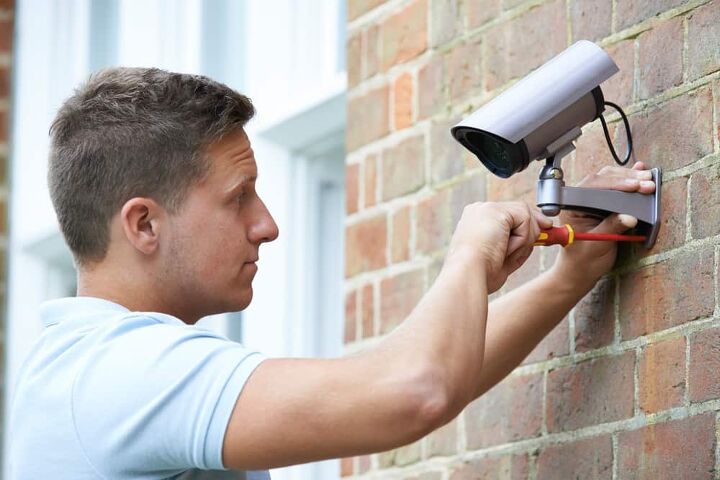













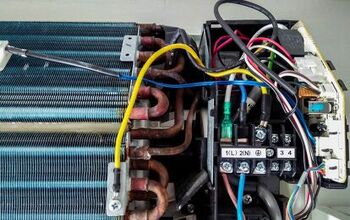
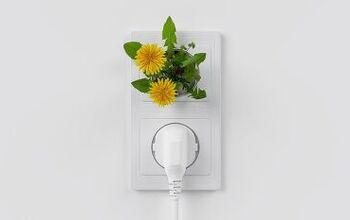

![Finishing Basement Without Permit [Is It Really Illegal?]](https://cdn-fastly.upgradedhome.com/media/2023/07/31/9070078/finishing-basement-without-permit-is-it-really-illegal.jpg?size=350x220)
![10 Best Electric Lawn Mowers - [2022 Reviews & Top Rated Models]](https://cdn-fastly.upgradedhome.com/media/2023/07/31/9070486/10-best-electric-lawn-mowers-2022-reviews-top-rated-models.jpg?size=350x220)

